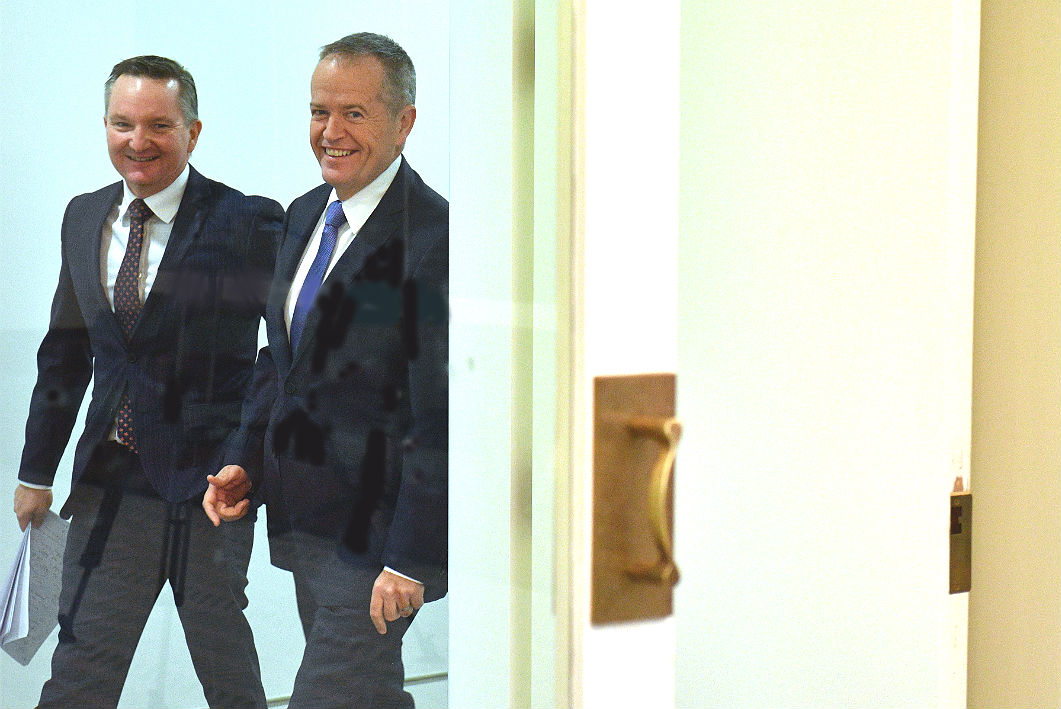The Turnbull government’s income tax package passed the Senate on Thursday. Finally.
The first round, centring on low- and middle-income earners, takes effect next financial year. Labor supported that bit. The next two, which favour higher earners and didn’t appeal to Labor, kick in respectively five and seven years from now.
Like so many bills that have got jammed up in recent Senates, the sheer length and ferocity of the debate hasn’t been matched by the innate importance of the legislation. Delivering tax policy that doesn’t apply until the term after the term after the current one — by which time one change of government is extremely likely, and two is possible — must surely be virtue signalling at its finest.
Bill Shorten will go to the next election promising to cancel future tax cuts for high-income earners. That shouldn’t prove much of a burden. But other policies — such as overriding that “independent umpire,” the Fair Work Commission, to reverse the penalty rate cuts — might make for awkward moments.
Labor’s high-profile housing policy largely survived the 2016 campaign unmolested, thanks partly to a broad expectation that a change of government was highly unlikely, and also to a government determined to run a (relatively) positive campaign. Neither of those conditions is likely to be repeated this time.
Shadow treasurer Chris Bowen is fond of reminding us that this is the most policy-courageous opposition in decades. He has a point; it will indeed be presenting a large-ish target. But there’s a reason recent oppositions have usually been modest with blueprints: the ghost of John Hewson’s Fightback! and the 1993 election hovers.
Despite the revisionism that routinely follows elections — tales of conviction politicians cutting through, connecting with battlers and heroically seizing the agenda — changes of federal government tend to come about when (a) most voters are sick and tired of the current bunch and (b) the opposition doesn’t look too scary. That means there’s little advantage in taking more policy to an election than is necessary.
The global financial crisis and “debt and deficits” led to the 2013 trouncing of the Labor government. (Presumably no one still believes that fairytale of a “carbon tax”–driven result.) Tony Abbott and the Coalition promised a return to the Howard years of exuberant businesses, overflowing government coffers and open wallets. It was always a hoax, and Abbott was soon paying the price. Incumbents continue to struggle largely because they too face economic and budgetary pressures.
The obstructive Senate doubles the difficulties, and will cause trouble for the next Labor government. Even a Labor–Greens majority, if there are no viable alternative crossbench routes, would be pretty awful for the prospects of successful governance. (As major-party support continues its decline, the Senate will continue to be a brake on good, or at least assertive, government until the electoral system is changed.)
Economic responsibility is not what it used to be at elections. Oppositions now seem freer than before to say whatever makes people feel good. The inevitable tension between Bowen, a self-styled Paul Keating protégé raring to dig his teeth into big-R reform, and his apparently blank-canvas leader, simmers beneath the surface.
Shorten has been riding the “populist” wave that served Donald Trump, Jeremy Corbyn and, to a point, Jacinda Ardern. But Bill’s already had his Jeremy moment — at the last election, two years ago next month.
This time Labor will go into the election as solid favourite. Despite the idea in some circles that being seen to be doing well creates momentum and is self-fulfilling, underdog is a better spot to be. And in 2018–19 it’s a place reserved for the government.
If the Coalition is re-elected this year or next, the received wisdom will quickly develop that the opposition burdened itself with too much policy which, no matter how desirable the content, enabled the government to make the election about Labor rather than themselves.
And, for once, that received wisdom will be correct. ●





